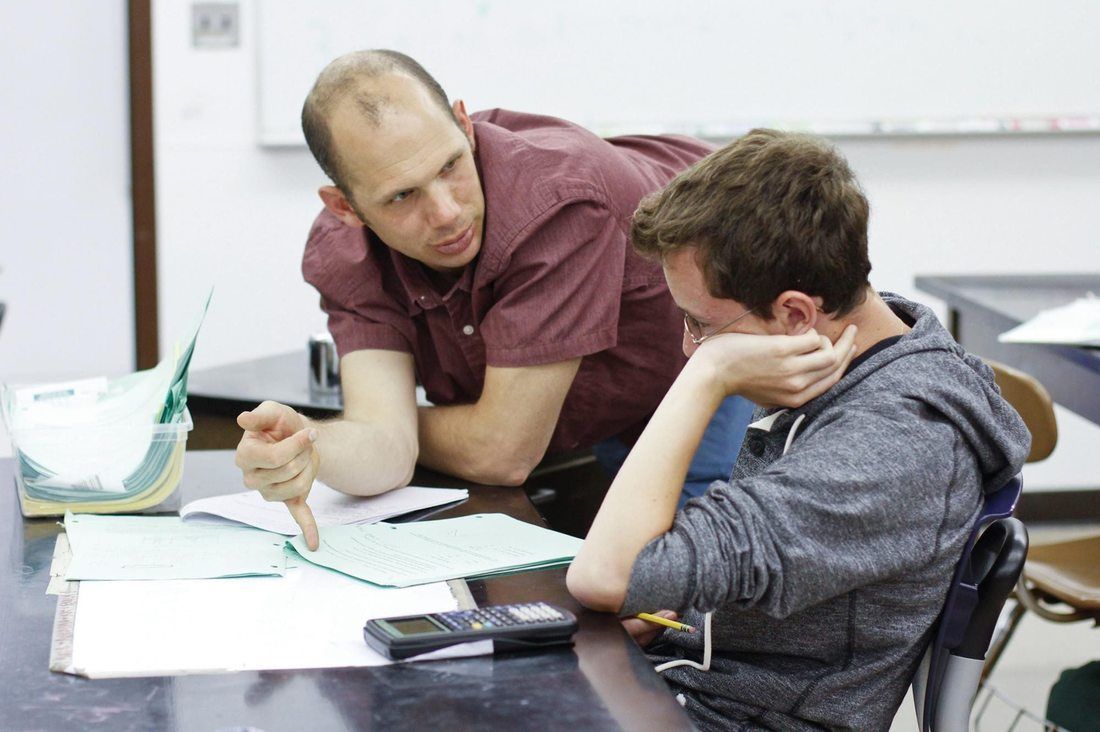|
|
|
For the past two years I have been leveraging the "Explore-Flip-Apply" learning cycle framework in my chemistry class. I love this framework as it simultaneously merges two important facets of instructional design: 1) Lecture is delayed while student curiosity is cultivated and misconceptions are harvested and 2) when lecture does appear, it is removed from the classroom, reserving the "community" learning space for higher order skills and deeper levels of rigor. After facilitating a number of NGSS trainings this past school year I found myself reflecting on the BSCS 5E Learning Cycle that the standards promote as an instructional process in the context of the NGSS Science Practices. This cycle, and the myriad of other learning cycles designed to facilitate inquiry, although present different vocabulary and quantifiable structures, all can be boiled down to three phases: Phase 1) Student Exploration; Phase 2) Content Explanation; Phase 3) Content Application. All the learning cycle structures mentioned above are grounded in a timeless (technology transcending) system designed to motivate students to seek information. Such structures seek to, as J.J. Abrahams says: "...intentionally withhold information" in order to create a sense of engagement in the context of a quest to fill a specific, salient, information gap. It comes as no surprise that this quote comes from a writer and producer. Indeed, if one investigates the Joseph's Campbell's "Hero's Journey", a structure that many books and films are based on, you will find striking similarities between it and the typical learning cycle. I have written and spoken about this overlap a number of times. Click here and here for samples. In an effort to better articulate my lesson planning process, both personally, and for colleagues, I am planning on using a new template that intentionally leverages language from the Hero's Journey. Click here for the beginnings of that work in my AP Chemistry class. Of course, I will never share this process with my students, as my job is to set up the conditions where they, the Hero's, will shine. I am a big fan of lesson planning templates as they help anchor me into a chosen pedagogy (inquiry based learning/delayed direct instruction) that I believe deeply in. Below is an outline of the structure I plan on using for the 2015-2016 school year. Note, the below cycle is merely an outline, and does not include specifics about formative assessment benchmarks or lesson specifics. Topic: X
Phase 1: The Call to Adventure (~ 15 minutes) A situation is presented designed to spark questioning about "Topic X". Phase 2: Entering the Unknown (~45 minutes) A guided challenge is assigned requiring student to seek answers to their questions about "Topic X". Phase 3: Meeting the Mentor (~10 minutes) A tailored lecture is presented where additional information and tools related to "Topic X" are given. Phase 4: Transformation (~50 minutes) A new challenge task is presented which requires student to apply understanding of "Topic X" to a new scenario. Phase 5: Mastery (~ 50 minutes) A content/skills assessment, private mentor reflection and individual public reflection re: "Topic X" is assigned. Comments are closed.
|
Categories
All
Archives
March 2024
|

 RSS Feed
RSS Feed